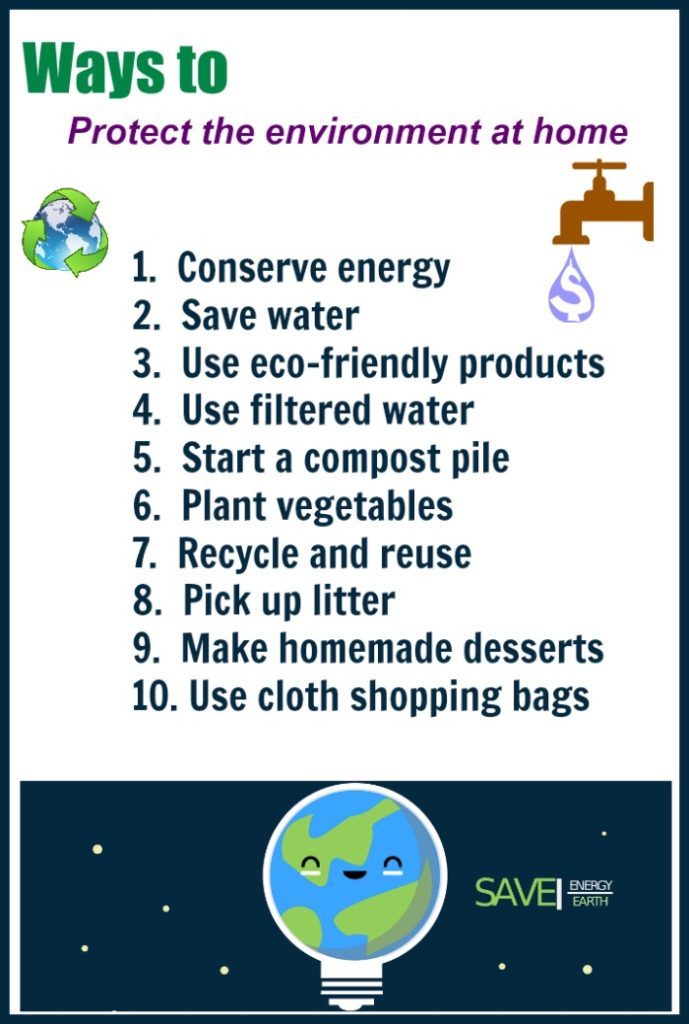Ways to Protect, Conserve and Restore Our Environment
For many years now, humans have had a significant impact on the environment through pollution, overconsumption of natural resources and destruction of habitats. While problems like climate change and pollution seem overwhelming, each small change we make can contribute to protecting the environment. In this article, we will explore various ways individuals can help protect, conserve and restore the environment through changes in their daily lives and habits.
Reduce Energy Consumption
Reducing energy consumption is one of the most impactful things individuals can do to help the environment. According to the World Health Organization, around 7 million people die each year as a result of air pollution. That’s about one in eight global deaths. Air pollution is also the world’s single largest environmental health risk. We can help reduce this risk by driving less and opting for public transport more often. Switching to more fuel efficient vehicles or electric vehicles can also help lower our carbon footprint. At home, we should turn off lights and electronics when not in use. Small habits like hanging clothes to dry instead of using the dryer can cumulatively save a lot of energy.

Choose Reusable Over Single-Use Items
Our unsustainable consumption habits are putting huge strain on the planet’s resources. One of the biggest issues is our reliance on single-use plastic items that are discarded after just one use. Choosing reusable items is a simple switch we can make. We should opt for glass, metal or wood utensils, cups and containers instead of disposable plastic ones. Reusable water bottles, shopping bags, straws and food containers are better options. Estimates suggest around eight million tonnes of plastic end up in our oceans every year causing severe damage to marine life and ecosystems. Choosing reusables can help curb this plastic pollution crisis.
Adopt A Zero Waste Lifestyle
Taking our environmental efforts a step further, we can focus on adopting a zero waste lifestyle which aims to eliminate all waste. This includes following the principles of refuse, reduce, reuse and compost to give discarded items a new lease of life. We can make our own cleaning products, personal care items and food from packaging-free bulk ingredients. Learning how to repair and upcycle things can extend their usable life. Proper waste segregation and composting of food scraps enriches the soil. A zero waste approach when combined with other eco-friendly habits could dramatically reduce one’s environmental footprint.
Plant Trees and Gardens
Nothing restores the environment quite like growing green cover. Planting trees is one of the best ways individuals can directly help mitigate climate change. Trees absorb carbon dioxide helping reduce the greenhouse gases responsible for global warming. Their shade also lowers temperatures, protects soil from erosion and provides habitats for birds and other wildlife. Even planting a potted herb garden on your balcony can offer environmental and well-being benefits. Community tree planting drives and native garden projects allow people to collectively restore local environments.
Support Renewable Energy Transition
Transitioning to renewable and clean sources of energy like solar and wind is key to protecting the environment in the long run. While changes need to happen at an industrial level, individuals can play a supportive role. We can research and invest in renewable energy companies spearheading this green energy revolution. Residents living in regions with green power options can choose to buy renewable energy credits to lower their carbon footprint. Writing to local representatives urging stronger climate action and renewable energy policies is another way to endorse clean energy transition.
Educate Ourselves and Others
None of the above efforts matter without education. We need to understand issues like climate change, plastic pollution and biodiversity loss to realize urgency of the situation. Following credible sources can help stay informed on latest environmental news and science. Having conversations about sustainability with family, friends and colleagues spreads awareness. On social media, we can share information about green lifestyle practices and policies with our networks. Environmental education in communities empowers more people to make impactful changes. Together, one informed person at a time, we can inspire positive collective action for the planet.
